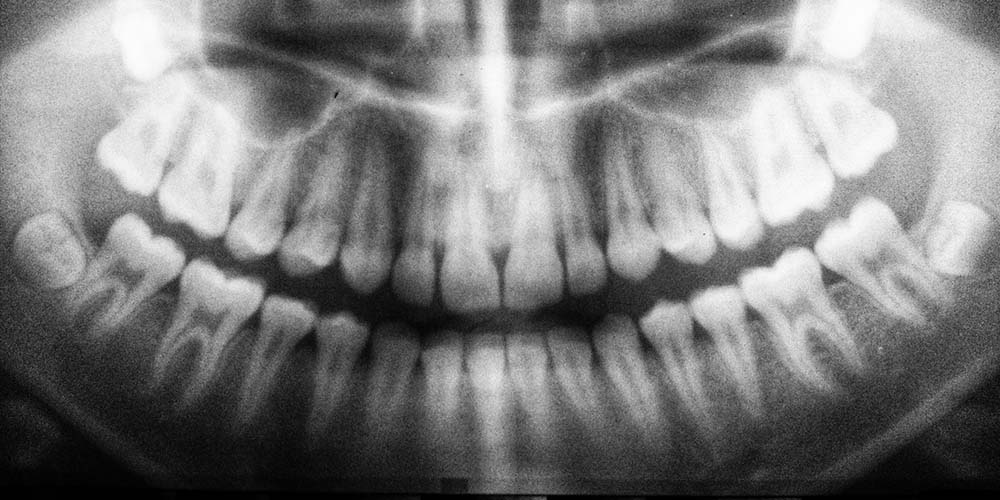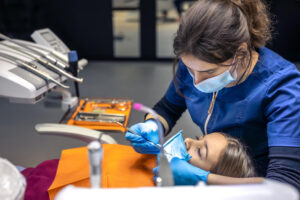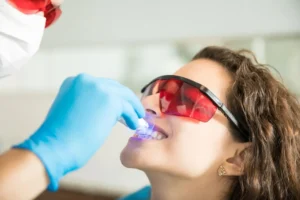Dental x-rays (or radiographs) are commonplace in modern dentistry. They provide dentists with a powerful tool to help diagnose and prevent a range of oral health issues. Yet x-rays can raise some anxiety and questions for patients So, are dental x-rays safe and what do dentists look for in the fuzzy greyness of a dental x-ray?
The x-ray was first invented in 1895, with the first dental x-ray performed just one year later by Charles Edmund Kells Jr, who is known as the father of dental radiology. By the 1950’s x-rays had developed into a safe and essential dental diagnostic tool. These days, modern digital x-rays allow an even faster and safer method for a dentist to see what’s going on below the gum line.
What do dentists look for in dental x-rays?
A dentist can tell a lot about your teeth during a dental exam. However, anything below the gum line, between tightly packed molars or inside your teeth is almost impossible without an x-ray. It is an excellent way to avoid future toothaches and spot issues before they become a dental emergency, saving you potential pain, expense and drawn out dental work.
- Spotting decay between the teeth.
- Noticing changes in the root canal.
- Detecting bone loss in the jaw.
- Diagnosing tumours or growths.
- Spotting infections between the tooth and gums.
- Checking the development of wisdom teeth.
- Identifying dental abscesses to avoid a dental emergency.
- Checking the suitability of the jaw for dental implants.
Are dental x-rays safe?
Modern dental x-rays are extremely safe. The radiation exposure is less than you would receive on a short plane flight or even from eating a bunch of bananas! Still, precautions are taken during any x-rays to limit your exposure depending on where and how the x-ray is taken.
For women, it is important to notify your dentist if you are, or could possibly be, pregnant so that x-ray can be either postponed or modified based on your specific situation.
And, the reason your dentist will politely step out of the room during your x-ray is because they perform hundreds of x-rays every year which would put them at risk of cumulative radiation exposure.
How often do I need an x-ray of my teeth?
The frequency of dental x-rays depends on your oral health. For most adults without any significant dental issues, an x-ray is needed every 12-18 months to monitor any significant changes.
If you have gum disease, it is important that this is monitored closely to prevent gum recession and bone loss in the jaw. X-rays may be taken more frequently such as every 6 months in these circumstances.
Also, if you change dentists, they will almost always require a fresh x-ray. If you have had x-rays taken very recently this could be useful but there are many types of dental x-rays and a new dentist will almost always feel more comfortable in their diagnosis from their own x-rays.
What are 'digital' x-rays?
Much like the move from film to digital cameras, digital x-rays allow an instant image of your teeth avoiding the time needed to develop the x-ray film. The x-rays can be shown on a TV screen immediately so the dentist can discuss any issues directly with you.
Digital x-rays have much less radiation exposure than traditional x-rays. They also provide a clearer and crisper image and storing digital x-rays is much simpler then their hard copy counterparts. This allows your dentist to have easy access to all your previous x-rays for future comparison.
Over two hundred years since they were first used, dental x-rays are still an essential tool in your dentist’s kit. Extremely safe, modern digital x-rays provide an instant and clear visual of your dental health below the gumline. They can help diagnose issues before they become more problematic, painful and expensive to fix.
Dr Finkelstein Dentist in Sydney’s CBD has a brand new clinic with state of the art equipment and x-ray technology. During your next dental exam, relax in the comfort of the dental chair while Dr Finkelstein clearly explains what your dental x-ray means to help you maintain and improve your oral health.








